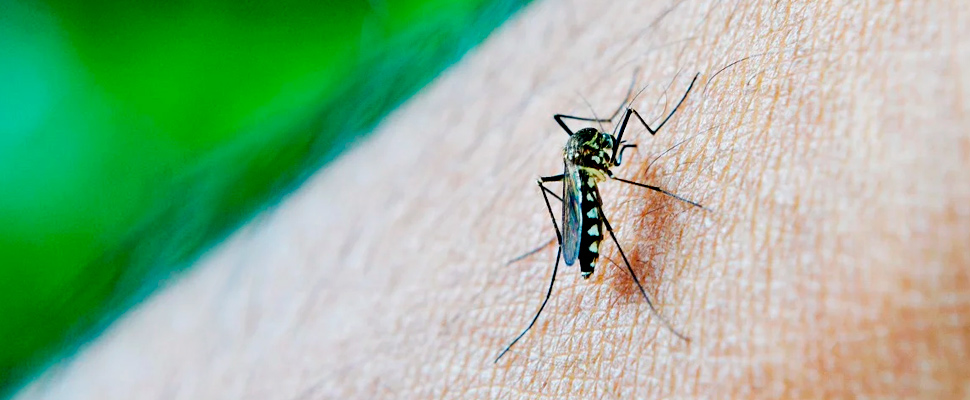Warning: Latin America has dengue
According to the most recent study published by the Pan American Health Organization, PAHO, more than two million people have suffered from dengue during 2019, that is, it has an incidence of 207.9 cases per 100,000 inhabitants, an alarming figure, especially if you consider that of those more than two million, more than 700 people have lost their lives.

Dengue virus carrying mosquito on the arm of a person. / Photo: Pixabay – Reference Image
LatinAmerican Post | Alberto Castaño
Listen to this article
Leer en español: ¡Alerta! Latinoamérica tiene dengue
"The region is going through a new epidemic period of dengue with a notable increase in cases," said Marcos Espinal, director of the Department of Communicable Diseases and Environmental Determinants of Health of PAHO.
Aedes aegypti, scientific name of the mosquito that transmits this disease, is acquiring a better capacity to adapt to different conditions, climates and seasons. However, it can be added that factors such as climate and poor environmental management have facilitated epidemiological risk in the countries of Latin America and the Caribbean.
The report highlights the vulnerability of children under 15, who in many countries are the most affected. The clearest example is that of Guatemala, where 52% of the cases reported as “severe dengue” is suffered by minors and in Honduras, 66% of deaths confirmed due to this virus are concentrated in that portion of the population.
PAHO calls on communities in all Latin American countries to carry out effective control against the proliferation of the vector that transmits this life-threatening disease. Well, in essence, Nicaragua, Brazil, Honduras, Belize, Colombia, El Salvador, Paraguay, Guatemala, Mexico, and Venezuela are the countries most affected by the epidemic.
This is not a job only for national or regional governments, it is the responsibility of each of the citizens who should take care not to facilitate the reproduction of Aedes aegypti.
"Without mosquitoes, there can be no transmission," were the words of José Luis San Martín, regional dengue advisor of PAHO, who added that "dengue is a problem of domestic and community sanitation, the most effective way to combat it is to eliminate its hatcheries to prevent it from reproducing.”
Also read: Did you know that smoking increases the risk of depression and schizophrenia?
Getting rid of vases, abandoned tires, bins or drums that can accumulate stagnant water can be the difference between health and disease because if the mosquito is removed from the habitat to incubate offspring, the chances of a greater proliferation will be reduced.
It is that this species of mosquito is a powerful transmitter not only of dengue but also of other life-threatening diseases from which the population of Latin America must protect itself; conditions such as yellow fever, chikungunya, Zika fever, and Mayaro virus.
The female of this small insect can lay up to 400 eggs that in a matter of a few days will be 400 mosquitoes that could potentially carry dengue or other diseases from house to house, which is why it is so important to carry out periodic and careful reviews to empty containers that could contain standing water.
Some authors of scientific publications say that the adaptations that the mosquito is making, lead to a more resistant species to different climates and altitudes, is mainly due to Climate Change, since the average temperature of certain regions has been increasing, allowing this dangerous adaptation.
It is important to declare frontal warfare on this common enemy and if you are suffering from a high fever, very severe headache, pain behind the eyeballs, joints and muscles, your case requires medical attention and a lot of rest, but if you arrive to feel severe abdominal pain, persistent vomiting, rapid breathing, bleeding from the mucous membranes, fatigue, irritability, and presence of blood in the vomit should go to a health center as soon as possible, as it is at high risk of complications, so Medical attention is paramount.
Assistance to specialized medical help can make a clear difference between life and death. Avoid self-medication and remember that if two million people have already suffered during 2019, nobody is exempt from suffering from dengue or hemorrhagic dengue.





